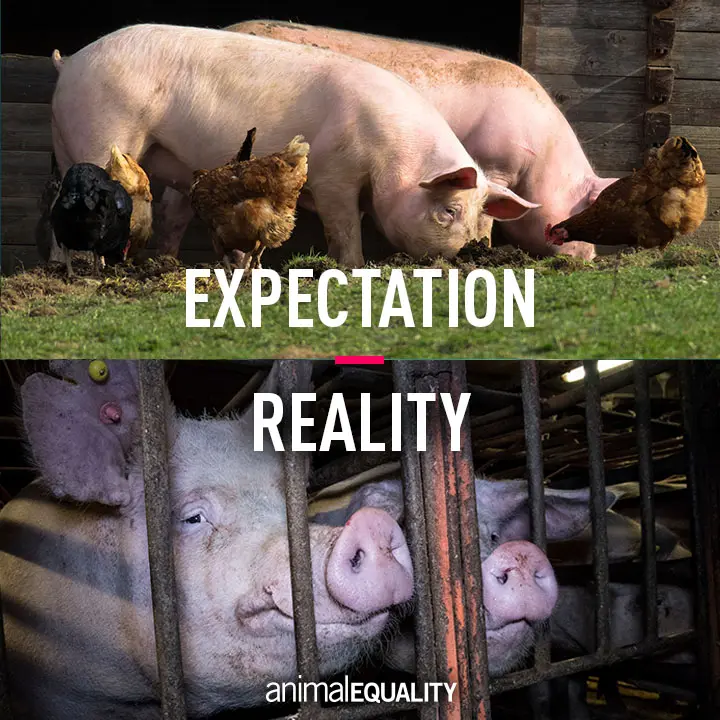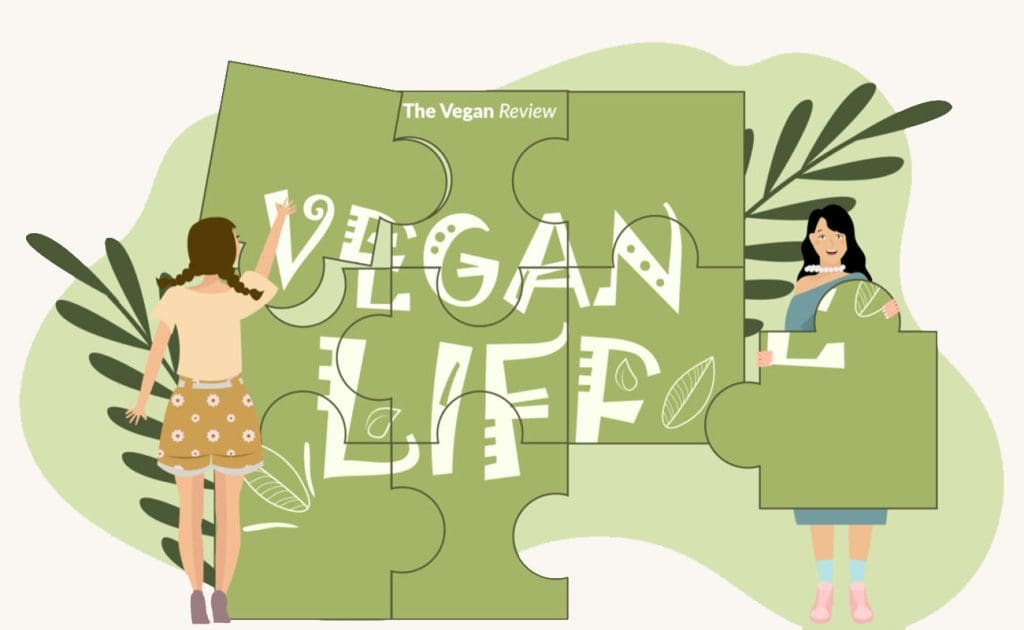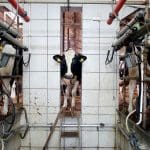Dunia inakuwa na uelewa zaidi wa hitaji la maisha endelevu, umisheni unajitokeza kama suluhisho lenye nguvu ambalo halizingatii tu uendelevu wa mazingira bali pia linawalinda wanyama. Umisheni huenda zaidi ya chaguo la lishe; ni mtindo wa maisha unaolenga kuondoa matumizi na matumizi ya bidhaa za wanyama kabisa. Njia hii ya maisha endelevu na ustawi wa wanyama imepata umaarufu mkubwa duniani kote, ikiwahamasisha watu kufanya maamuzi ya huruma ambayo yataacha athari chanya kwenye sayari yetu.

Athari za Mazingira za Kilimo cha Wanyama
Kilimo cha wanyama ni mojawapo ya wachangiaji wakuu wa mazoea yenye madhara kwa mazingira. Takwimu ni za kutisha, huku sekta hii ikiwa na wajibu wa sehemu kubwa ya ukataji miti, uzalishaji wa gesi chafu, na uchafuzi wa maji.
Katika jitihada za kufuga wanyama kwa ajili ya nyama na maziwa, maeneo makubwa ya misitu hukatwa kila mwaka, na kuhatarisha bioanuwai na kuchangia mabadiliko ya hali ya hewa. Zaidi ya hayo, mashamba ya viwanda huachilia kiasi kikubwa cha gesi ya methane na oksidi ya nitrojeni, ambazo ni gesi chafuzi zenye nguvu zinazozidisha ongezeko la joto duniani. Aidha, matumizi ya maji kupita kiasi na mtiririko wa taka za wanyama kwenye vyanzo vya maji huweka vitisho vikubwa kwa mifumo ikolojia ya majini na upatikanaji wa maji kwa matumizi ya binadamu.
Maswala ya Ustawi wa Wanyama katika Sekta ya Nyama na Maziwa
Nyuma ya milango iliyofungwa ya tasnia ya nyama na maziwa kuna ukatili usiowezekana unaowakabili wanyama wasio na hatia.

Kilimo cha Kiwanda
Katika mashamba ya kiwandani, wanyama wanakabiliwa na hali mbaya ambayo hutanguliza faida kuliko ustawi wao. Mara nyingi wanafungwa kwenye nafasi finyu, wananyimwa upatikanaji wa mwanga wa jua na hewa safi, na kulazimishwa kusimama au kulala kwenye taka zao wenyewe. Homoni na viuavijasumu hupigwa mara kwa mara ili kuongeza viwango vya ukuaji, na kusababisha matatizo mbalimbali ya kiafya. Kuteseka kwa kihisia na kimwili kwa wanyama hawa ni jambo la kusikitisha.
Machinjio na Ukatili Unahusika
Katika machinjio, ukatili hufikia kilele chake. Wanyama hupata msongo mkubwa na maumivu wakati wa mchakato wa kuchinjwa. Kwa mfano, kuku na nguruwe mara nyingi hukandamizwa wakiwa hai kwenye maji yanayochemka, na ng'ombe wanaweza kukatwa vipande vipande kabla hawajapoteza fahamu kabisa.
Kupitia uchunguzi wa siri, tumepewa ufikiaji wa picha za kutisha ambazo zimeleta kwenye mwanga hali na desturi zisizo za kibinadamu ndani ya vifaa hivi. Mfiduo kama huo umeamsha ufahamu wa umma, na kuleta maswali muhimu juu ya wajibu wetu wa kimaadili kwa wanyama tunaoshirikiana nao kwenye sayari hii.
Umisheni kama Suluhisho

Faida za Kiafya za Uvegan
Kukumbatia mtindo wa maisha ya vegan hutoa manufaa mengi ya afya. Kinyume na imani maarufu, lishe iliyopangwa vizuri ya vegan inaweza kukidhi mahitaji yote ya lishe. Ni matajiri katika nyuzi, vitamini, na madini wakati kuwa chini katika mafuta yaliyojaa na cholesterol.
Uchunguzi mbalimbali pia umeonyesha kwamba kupitisha lishe ya vegan kunaweza kupunguza hatari ya magonjwa sugu, ikiwa ni pamoja na ugonjwa wa moyo, kisukari, na baadhi ya saratani. Kwa vyovyote vile, idadi inayoongezeka ya wanariadha wa vegani wanapinga dhana potofu na kufikia mafanikio ya ajabu, na hivyo kukanusha dhana kwamba lishe inayotokana na mimea haina protini zinazohitajika kwa utendaji wa riadha.
Mazingatio ya Kiadili
















































